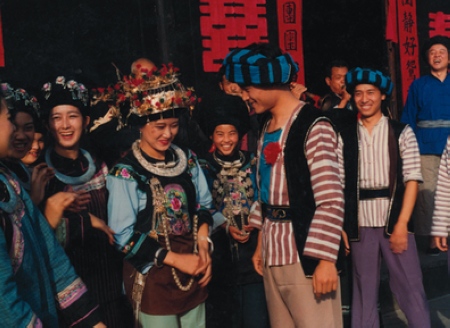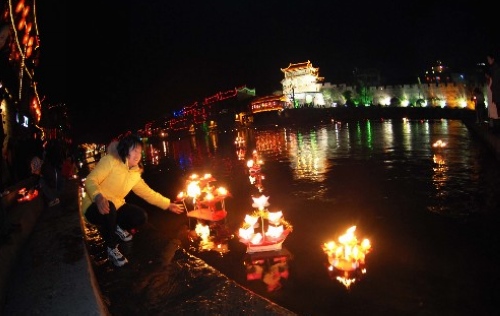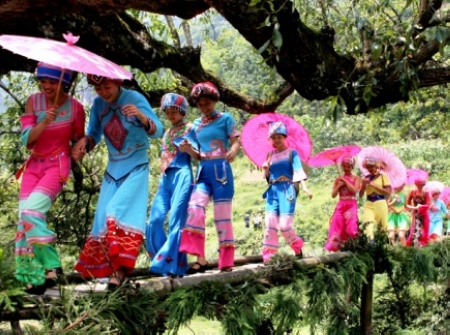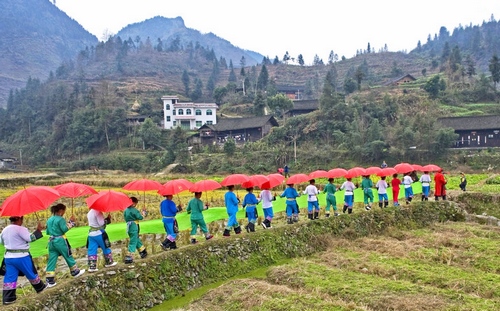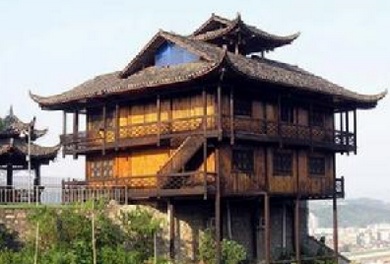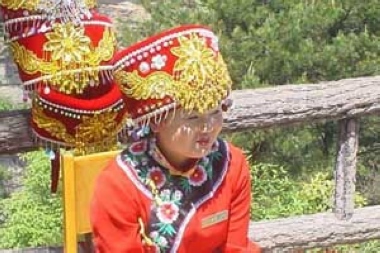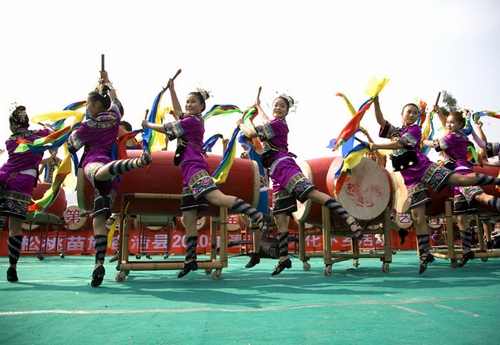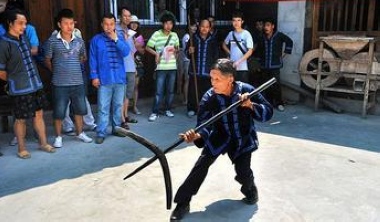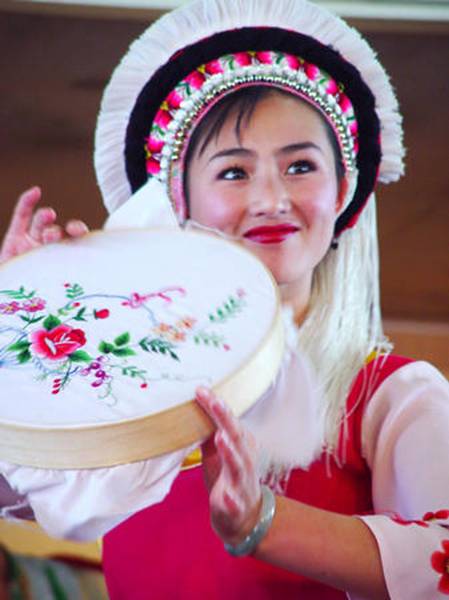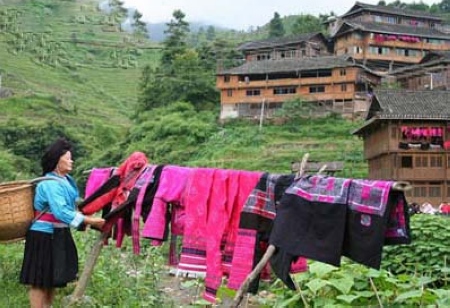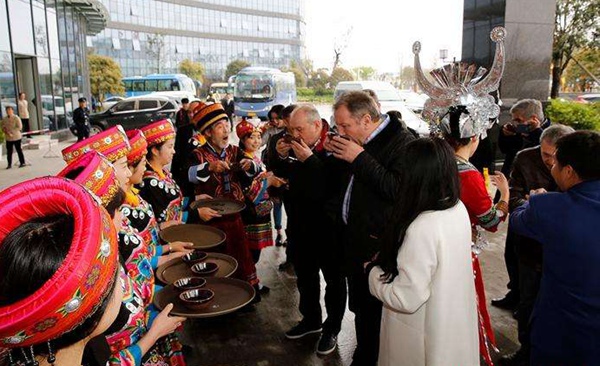There exists high degree of autonomy in Fenghuang Miao people’s marriage. Singing in antiphonal style is the most representative way of expressing love between Miao men and women. Miao youth pay much attention to artistic talent and moral characters instead of property and family financial situation.
Miao men and women can exchange tokens of love when finding an appropriate lover. Generally they need to ask for their parents’ approve before getting married. In most Miao districts, autonomous marriage coexists with arranged marriage.
Another form is marriage by capture or the similar ways. Under the circumstances of a young man and a woman are willing to become life partners though free love, the man can invite his friends to help him bring the woman to his home, thus forming marriage. After three days, they invite a blessing old man to tell the woman’s parents about the marriage and ask for their permission, taking a chicken. Then, both sides discuss about the date and detailed matters related to hold a wedding in parental home.
Generally, Fenghuang Miao youth get married between 16 to 20 years old. Early marriages also exist in about 14 to 15-year-old youth. Different nationalities or even different sublines of Miao nationality do not be related by marriage by and large.
They can divorce if incompatible emotion appears after getting married. The one who first ask for a divorce needs to apologize and pay compensation to the other side. Fenghuang Miao nationality pursues monogyny. Women have some right to speak in family affairs, but male-dominated society still accounts for main part. Fenghuang Miao people have their own family names, while now they use Chinese family names mostly as Han people do.
Translated by Becky
